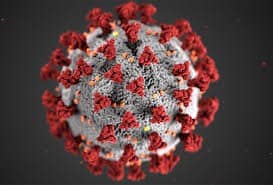
Researchers think they are closer to understanding how long COVID works, and a plant-based diet could be a way to combat it. A recent article suggests that a COVID infection could lower serotonin (sometimes called the “happy” chemical) levels for months after the infection.1 Previous research has shown that diets rich in carbohydrates help increase serotonin levels.2 Another review of studies has found that plant-based diets can improve symptoms associated with long COVID, including anxiety, depression, sleep disorders, and musculoskeletal pain.3
References
1. Wong A, Devason A, Umana I, et al. Serotonin reduction in post-acute sequelae of viral infection. Cell. 2023;186:1-17. doi:10.1016/j.cell.2023.09.013
2. Wurtman R, Wurtman J. Brain serotonin, carbohydrate-craving, obesity and depression. Obes Res. 1995;Suppl 4:477S-480S. doi: 10.1002/j.1550-8528.1995.
3. Storz M. Lifestyle adjustments in long-COVID management: potential benefits of plant-based diets. Curr Nutr Rep. 2021;10(4):352-363. doi:10.1007/s13668-021-00369-x
In six countries, plant-based diets or pescatarian diets were associated with lower odds of moderate-to-severe COVID-19. These dietary patterns may be considered for protection against severe COVID-19. Reference : https://nutrition.bmj.com/content/4/1/257
Good evidence exists to show that the beneficial effects of a whole food, plant-based (WFPB) diet also applies to viral diseases like COVID-19 This is based on.
1) research findings in the lab in the 1970s through the 1990s,
2) supplementary evidence from a comprehensive study of diet, lifestyle and disease, twice done, in a human population in rural China during the 1980s, and
3) specific evidence from researchers on diet and viral infection.
https://plantpurecommunities.org/defense-against-covid-19/
https://www.pcrm.org/health-topics/coronavirus
A report published in March supports previous findings that increased body mass index (BMI) worsens severe outcomes from COVID-19. The recent analysis included more than 148,000 adults with a COVID-19 diagnosis during emergency department or inpatient hospital visits from March–December 2020. The risk of hospitalization, intensive care unit admission, invasive mechanical ventilation, and death were higher with increasing BMI.
Obesity is a complex metabolic disease with many contributing factors. Healthy eating and active living; neighborhood design; access to nutritious, affordable foods and beverages; and access to safe and convenient places for physical activity can all impact weight and health. The racial and ethnic disparities in obesity underscore the need to address social determinants of health such as poverty, education, and housing to remove barriers to health.
Reference: Body Mass Index and risk for COVID-19–related hospitalization, intensive care unit admission, invasive mechanical ventilation, and death — United States, March–December 2020. Kompaniyets L, Goodman AB, Belay B, Freedman DS, Sucosky MS, Lange SJ, Gundlapalli AV, Boehmer TK, Blanck HM. MMWR Morb Mortal Wkly Rep 2021;70:355–361.